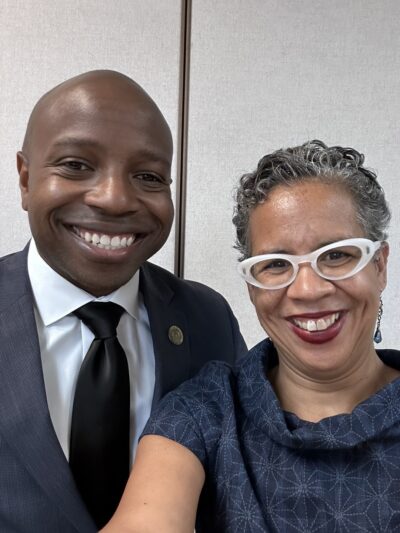
Last month my National Fund travels took me to Milwaukee, where I got to join in some important conversations that are helping to guide and inform our work. As part of our ongoing Career Navigation research project, our team has been crisscrossing the country, interviewing workers from several industries — including manufacturing, IT, construction, care economy (childcare, domestic and home health), and youth workers — to gain firsthand insight into their experiences with career navigation.
Through our interviews in Milwaukee, we were introduced to Black construction workers who shared stories about how the challenges and triumphs of their education and work paths led them to where they are today. Hearing the diverse voices of workers, both in Milwaukee and in other cities, has been critical to our efforts to paint a more nuanced picture of how occupational segregation impacts career journeys.
These conversations were particularly germane to our work, as we have been exploring ways to promote racial equity in the construction and skilled trades workforce to ensure more people of color are employed in jobs created through recent major federal investments in infrastructure. Even though the industry is booming, workers of color continue to be largely excluded from opportunities. Understanding how occupational segregation shows up in these sectors is critical to increasing equitable access and diversify pipelines into the industry.
Our local network collaborative, Milwaukee Area Workforce Funding Alliance, also invited the National Fund team to join a roundtable discussion with a fierce group of workforce advocates that included two special guests — Milwaukee’s first elected Black mayor, Cavalier Johnson and County Executive, David Crawley. Both of these leaders have deep experience in workforce development. Mayor Johnson even shared that he got his start as an intern at the Milwaukee Area Workforce Investment Board. I came away impressed by their fresh ideas and genuine interest in supporting intergenerational wealth for people of color in Milwaukee.
The visit to Milwaukee was energizing and reminded me of the importance of authentic connection and conversations to our work. A big thank you to our hosts, Jerry Roberts and Shannon Reed, for ensuring we had such a fruitful trip. Hearing from workers, practitioners, policymakers and others who all have a stake in creating a more equitable workforce helps us create better solutions to break down barriers to change. Ultimately, it allows the National Fund to accelerate our vision of ensuring that all workers have the resources they need to thrive, race does not dictate employment outcomes, and all jobs are good jobs.





